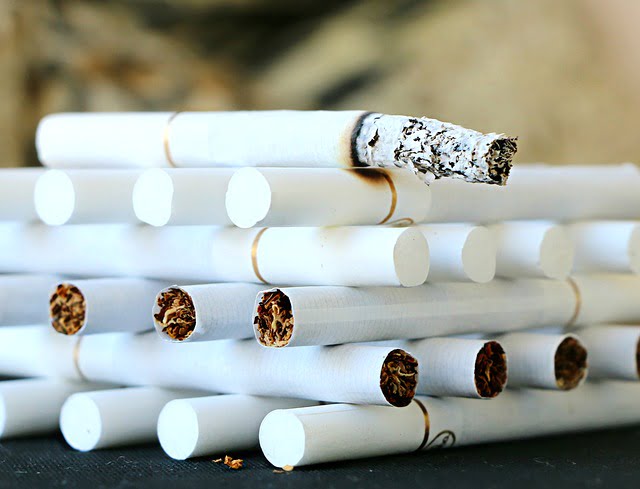So how does smoking impact on your oral health?
Oral health problems smokers can incur include:
- Oral cancer;
- Whitening of the oral mucosa (mucus membrance), called smokers keratosis;
- Poor healing after tooth extractions (due to poor blood supply);
- Poor healing after mouth and gum surgery;
- Decreases likelihood that dental implants will be successful;
- Stained teeth;
- Bad taste and bad breath; and
- Dental decay.
The University of Adelaide’s Dental Practice Education Research Unit notes in an online article that ‘epidemiological studies have provided evidence that tobacco smokers have poorer oral hygeine than non-smokers’…and increased quantities of dental calculus (a form of hardened dental plaque).
People who smoke less than 10 cigarettes per day are 2 times more likely than non-smokers to develop periodontal (gum) disease.
Smoking reduces the amount of oxygen in the blood and leads to poor bloody supply to the mouth and gums. This poor oxygen-depleted blood supply to gums means a key symptom of gum disease, bleeding gums, is often masked in smokers. Advanced gum disease most often leads to tooth loss.
If you are a smoker, here are some ways you can improve your oral hygiene and oral health outcomes:
- Visit your dentist regularly to keep your oral health in good condition;
- Try to quit smoking;
- Brush teeth and gums twice a day with fluoride toothpaste;
- Use dental floss to clean between teeth and stimulate gums;
- Drink plenty of water and occasionally chew sugar-free gum to stimulate saliva production; and
- Restrict alcohol intake.
Contact us today to find out more about smoking and oral health.
If you’d like to quit smoking – visit the quitnow website.
To guide you in some more research here are some helpful links:
http://www.quitnow.gov.au/internet/quitnow/publishing.nsf/Content/effect-on-mouth
https://www.betterhealth.vic.gov.au/health/healthyliving/smoking-and-oral-health
https://www.adelaide.edu.au/arcpoh/dperu/cpep/info/smoking.html


